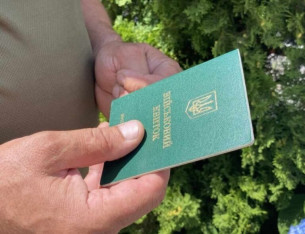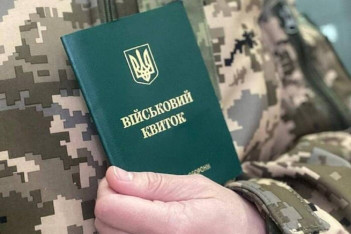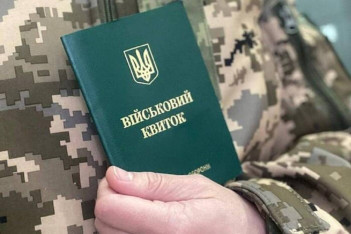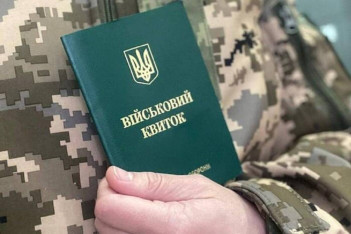In modern conditions of martial law, the issues of mobilization and conscription for military service in Ukraine are extremely relevant. Many people, including persons with disabilities, need a clear understanding of their rights, the conditions for deferment, and the possibilities for exercising them.
What Is a Deferment from Military Service?
A deferment from military service is a temporary exemption from fulfilling military duties under certain circumstances. Ukrainian legislation specifies the grounds for obtaining such deferments, with one of the most important being an individual's health condition. In particular, a deferment due to health issues may be granted to individuals with certain medical contraindications or those officially recognized as having a disability.
Deferment from Military Service Due to Health for Individuals with a Second-Degree Disability
Individuals with a second-degree disability have significant health limitations that typically preclude them from performing military service. Under Ukrainian law, such persons are eligible for a deferment or complete exemption from mobilization.
Key Steps to Obtain a Deferment:
- Confirming Disability Status: This requires providing medical documents that confirm the second-degree disability.
- Preparing Documentation: Includes submitting an application to the military commissariat along with a certificate from the Medical and Social Expert Commission (MSEC).
- Legal Consultation: To avoid errors in documentation, it is advisable to consult a lawyer.
It is also important to regularly update medical documentation to avoid potential misunderstandings at the military enlistment office. If a person encounters difficulties in obtaining a deferral, they can contact human rights organizations or public associations that specialize in protecting the rights of persons with disabilities. It is crucial to remember that such individuals have a legal right to deferral or exemption, and it is necessary to insist on compliance with the law.
How to Obtain a Deferment from Mobilization?
To obtain a deferment from mobilization, you must:
- Contact the Military Commissariat: Individuals seeking a deferment must submit all necessary documents, including medical certificates.
- Undergo a Medical Commission: The Military Medical Commission (MMC) evaluates the health condition and makes a decision regarding the deferment.
- Finalize the Deferment: Once the commission makes a favorable decision, you will be issued the appropriate document.
A lawyer can assist in processing the deferment, consulting on the accuracy of submitted documents, and representing the individual's interests in case of disputes. It is advisable to prepare all necessary documents in advance to avoid delays in the review process. If a deferral is denied, the decision of the commission can be appealed in accordance with the established legal procedures.
Deferment for Caregiving: Who Is Eligible?
In addition to health-related grounds, another basis for deferment is the need to care for family members. A caregiving deferment may be granted to individuals responsible for:
- Elderly parents,
- Persons with disabilities,
- Minor children or other family members requiring constant care.
To qualify, you must collect supporting documents, such as certificates from medical institutions, court decisions, or other official records. It is also necessary to provide documents confirming family ties with the person requiring care, such as a birth or marriage certificate. In some cases, a report from social services confirming the necessity of care may be required. All these documents should be submitted to the military enlistment office along with the deferral application.
How Can a Lawyer Assist?
A lawyer specializing in mobilization and military service rights can:
- Provide Consultations: Explaining the conditions for obtaining deferments and grounds for exemption from mobilization.
- Prepare Documentation: Assisting with the proper completion of applications, legally sound inquiries, and filing complaints.
- Represent Interests in Court: In cases where the military commissariat denies a deferment or other disputes arise.
- Support During the Medical Commission: Offering legal support if the conclusions of the MMC are contested.
A lawyer can also prepare an appeal in case of a denial of deferral or help contest unlawful actions by military authorities. They will ensure support at all stages of the process to minimize the risks of errors or refusals. Additionally, the specialist can offer consultations on alternative ways to resolve the situation if the standard grounds for deferral are not applicable.
Question
Can Individuals with a Second-Degree Disability Obtain a Deferment from Conscription?
Answer
Yes, individuals with a second-degree disability are entitled to a deferment due to their health condition. In some cases, they may be fully exempted from military service.
Question
What Documents Are Required to Obtain a Health-Related Deferment?
Answer
To obtain a deferment based on health, you must provide medical documents confirming illness or disability, an MSEC certificate, and an MMC conclusion.
Deferment from conscription due to health: Individuals with second-degree disabilities are entitled to deferments or full exemption. Requires passing a medical commission (MMC).
Deferment from Mobilization: To formalize a deferment, contact the military commissariat with documents, including medical certificates, an MSEC certificate, and an MMC conclusion.
Caregiving Deferment: Granted to those caring for elderly parents, children, or relatives with disabilities.
The issue a deferment a deferment from mobilization or a health-related deferment is critically important for many Ukrainian citizens. This is especially true for individuals with second-degree disabilities, who, due to their health, are entitled to deferments or full exemption from service. To avoid errors in documentation, protect your rights, and expedite the process, consulting a lawyer is highly recommended. Such cooperation ensures confidence in the legality of your actions and protects against potential issues with military authorities.



































